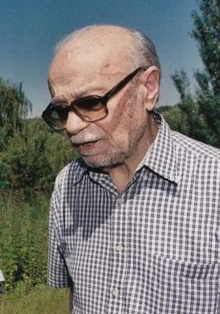Pedro González
Journalist
Rebuilding a country like Brazil, the largest in South America and the fifth largest in the world, is certainly a Herculean task. Both terms were used by President Lula da Silva and his vice-president Gerald Ackerman on the occasion of the former’s inauguration for the third time at the head of the Brazilian state.
In order for the people to perceive from the outset the radical difference between Jair Bolsonaro and Lula da Silva, the new president described the “disastrous inheritance” he received: a health system in ruins, no less than education, culture, science and technology, dismantled by his predecessor, whom he also accused of destroying the environment. In describing such a Dantesque panorama, Lula is perfectly in keeping with the textbook, since, from this point onwards, everything that is done will necessarily be infinitely better. He is also targeting the most sensitive sectors, both for the Brazilian population itself and for international observers, who consider Brazil and its Amazon to be the lungs of the planet.
The analysis of his half-hour inaugural speech, then, reveals a real political masterclass, in line, of course, with the strategy of the Sao Paulo Forum, the alliance of progressive personalities and intellectuals, promoted among others by Lula himself, to establish left-wing governments throughout the continent. Almost all of the continent is already stained red, with the exception of Ecuador, Uruguay and Paraguay for the moment. And with Lula in the Planalto Palace in Brasilia, this is the decisive opportunity for Latin America to demonstrate its potential once and for all.
Brazil is not only returning to the forefront of international news, but also putting itself at the helm of the continent, as the way it faces and tackles the economic and social challenges of its 218 million inhabitants will inspire the other leaders, who will nonetheless keep a close eye on Lula’s movements. How he solves such common problems as unemployment, high poverty rates and public debt will be taken note of by Latin American governments and citizens alike, and may or may not raise their hopes that the continent can finally shake off its endemic backwardness. Despite the dramatic way in which he described the inheritance received, the real indices are not so Dantesque: 8.7% unemployment among the active population; 29.4% of the poor and 76% of public debt as a percentage of GDP, according to various reports compiled by the EFE and AFP agencies. Comparatively speaking, there are many countries, including on the European side of the Atlantic, with much worse indices in these areas.
The narrow margin with which Lula won the elections and the alliances he has been forced to make as a result have led him to build the largest government in the world: no less than 37 ministries, 11 of which will be headed by a woman. It is assumed that all the sensibilities of the bloc that supports him will thus be represented in the Council of Ministers. It will be another matter to test its effectiveness, especially when the bills pass through Parliament, where the pro-Bolsonaro opposition holds a majority. Lula has not waited to reverse some of the most controversial measures of his predecessor, who, following Donald Trump’s bad example, preferred to absent himself from the inauguration ceremony and even left the country for the United States, breaking the tradition of handing over the presidential sash to his successor.
The first decrees, then, were to cancel the facilities that Bolsonaro granted for access to firearms and to strengthen conservationist organisations in the Amazon. They are undoubtedly a good calling card. Now comes the hardest part, the Herculean part, according to his vice-president. Although neither has mentioned it, the presidential tandem will have to tackle the ever-present problem of corruption, and shake off the stigma of corruption. The Supreme Court that ordered Lula’s release never ruled on the substance of the sentence that convicted him but freed him on the basis of a procedural flaw.
At the international level, in addition to the Ibero-American neighbourhood, Europe is waiting expectantly to see whether Lula will finally be able to give the definitive impetus to Mercosur, perhaps the last chance for the world’s potentially most important trade agreement to enter into force or whether it will be a frustrated dream. And finally, on the political front, both Europe and the United States, which strongly supported Lula, will see whether the veteran and seasoned former trade union leader is capable of curbing the caudillista and extremely populist temptations of some of his American colleagues.
© Atalayar / All rights reserved






